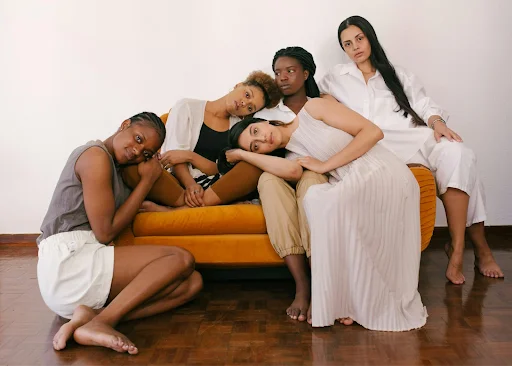The quest for perfection in appearance has become a significant influencer of mental wellness, particularly in today’s visually driven society. Social media platforms showcase curated lives that often emphasize beauty standards, leading individuals to measure their worth against unrealistic ideals. This relentless pursuit of beauty can trigger anxiety, depression, and other mental health issues. As societal norms evolve, understanding the relationship between appearance-related pressures and mental health becomes critical for promoting overall well-being.
Societal Standards of Beauty
Society has long held certain standards regarding attractiveness, heavily influenced by media representations and cultural beliefs. Historical trends denote that these standards are often unattainable, with features such as flawless skin, slim physiques, and perfect hair dominating the discourse. As various media outlets continue to propagate these ideals, it becomes challenging for individuals to embrace their unique appearances.
Studies indicate that women and men alike report significant pressure to adhere to these beauty norms, contributing to negative self-image and lowered self-esteem. Many individuals resort to extreme measures, such as fad diets or cosmetic procedures, to alter their appearance by these ideals.
Social Media Dynamics
The rise of social media has revolutionized communication, yet it serves as a double-edged sword concerning mental wellness. Platforms like Instagram and TikTok often present an idealized version of reality, where edited images set unattainable standards. Individuals frequently compare themselves to others, leading to feelings of inadequacy and low self-worth. Research shows that social media users who engage with appearance-focused content are more likely to report body dissatisfaction and depressive symptoms.
Digital interactions fostering unhealthy comparisons can skew an individual’s perception of reality. The highlight reel that social media offers masks the struggles everyone faces, fostering an environment where authenticity is often sacrificed for likes and followers. The constant exposure to curated lives can perpetuate the desire to conform to unrealistic standards, making it imperative for individuals to actively cultivate a positive self-image and engage critically with social media content.
Impact of the Beauty Industry
The beauty industry plays a pivotal role in shaping perceptions of attractiveness and desirability. Advertising campaigns often utilize airbrushed models and edited images, which can distort reality for consumers. This unrealistic portrayal establishes an aspirational goal, prompting individuals to purchase products in a quest for perfection. An alarming statistic reveals that the global beauty market is projected to reach over $800 billion by 2023, illustrating the extent to which appearance-driven consumption permeates society.
Beyond superficial interests, individuals find their self-esteem tied to product efficacy and personal appearance. Consequently, this can lead to compulsive behaviors surrounding makeup, skincare, and other beauty enhancements. In extreme cases, addiction to cosmetic usage or surgery can develop, highlighting the profound effect that the beauty industry exerts on mental health. With trends promoting cosmetic procedures amongst younger demographics, the potential for lifelong mental health issues grows.
Peer Influence and Relationships
Close social circles significantly impact individual perceptions of beauty and self-worth. Peer pressure can drive individuals to conform to societal beauty standards, often resulting in unhealthy behaviors as they seek acceptance. The quest for approval can take precedence over personal comfort and authenticity. Relationships can become strained when individuals prioritize appearances over meaningful connections. Mental health conditions, such as body dysmorphic disorder, can emerge from persistent dissatisfaction influenced by peer interactions.
Friendships often hinge on shared experiences, which can include discussions about physical appearance. This emphasis can create an environment of competition rather than support, undermining personal confidence. When individuals feel pressured to uphold certain standards, it becomes increasingly challenging to maintain genuine relationships. Subsequently, fostering environments that celebrate individuality and diverse beauty can create a supportive culture, aiding mental wellness.
The Role of Professional Guidance
Professional guidance is crucial in navigating the complexities associated with appearance-related pressures. Psychologists and counselors can provide techniques to develop resilience and foster a realistic understanding of beauty. Therapy may involve cognitive behavioral strategies to reframe negative thought patterns that lead to poor self-esteem and dissatisfaction. With the help of professionals, individuals can cultivate self-acceptance and challenge the validity of externally imposed beauty standards.
Encouragingly, many professionals advocate for a balanced view of beauty, integrating mental and emotional health along with physical appearance. For individuals contemplating cosmetic enhancements, consulting a qualified PLASTIC SURGEON ORANGE COUNTY is vital to ensure informed decision-making aligned with personal well-being. A multifaceted approach to beauty, leading with mental wellness, can lead to more fulfilling and authentic self-expression.
Building a Positive Self-Image
Developing a positive self-image is a proactive approach to combating the adverse effects of societal pressure. Individuals can engage in self-reflection and mindfulness practices to foster self-acceptance. Cultivating an understanding of personal strengths and unique qualities helps counterbalance societal expectations. Practicing gratitude, emphasizing personal achievements, and surrounding oneself with supportive influences can significantly improve self-esteem.
Creative expression, whether through art, writing, or other media, can provide an outlet for individuals to celebrate their individuality. This creative freedom allows people to redefine beauty on their terms, promoting a healthier relationship with self-image. Reaffirming one’s uniqueness becomes imperative in an environment often fraught with comparison and judgment.
Appearance-related pressures affect mental wellness through societal standards, media influence, and peer dynamics. As individuals navigate these challenges, fostering professional support and cultivating positive self-images play pivotal roles in mental health. Building resilience against external pressures can lead individuals toward fulfilling and authentic expressions of beauty.







